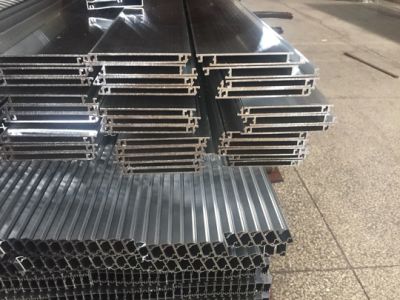There are different definitions of flexibility, but generally, it means being able to respond to changes in production needs quickly. Flexible manufacturing systems are designed with this in mind.
It’s important to take your business needs into consideration when choosing aluminum extrusion companies. Make sure that the company you choose can deliver high-quality products within a reasonable time period.
The Automotive Industry
The automotive industry relies heavily on high-quality metal-based elements in their vehicles, so it makes sense that they need an industrial production system that can handle multiple product specifications simultaneously. FMSs are well-suited for the task, as they provide work cells that can be easily changed over, streamlined material flow and quality control, better data monitoring and the ability to future-proof operations.
The small batch sizes that come with FMS allow you to produce more products in less time, reducing the amount of waste your company generates. You can also reclaim and reuse your materials more efficiently, further reducing the environmental impact of your business.
Investing in an FMS will require a significant capital investment. But the money saved through improved efficiency and customer satisfaction will more than offset the upfront costs. You will also need a software solution that is up to the challenge of managing an advanced flexible manufacturing system. This will give your team members the dashboards they need to make informed decisions about their work.
The Food and Beverage Industry
As food and beverage manufacturers struggle with rising energy costs, wage pressures, supply chain issues and the coronavirus pandemic, they must balance production demands and keep overhead low. One way they can do so is by implementing flexible manufacturing systems.
Flexible manufacturing systems are designed to be more forgiving than traditional assembly lines, which means they’re less likely to shut down if something goes wrong. They also allow companies to make a single change without disrupting the entire system.
Additionally, by using flexible manufacturing systems, businesses can reduce production costs by avoiding waste and saving on utilities. They can also take advantage of automated storage and retrieval systems (ASRS), which are essentially robots that move parts around the factory. This allows them to personalize their standard product lines and respond quickly to the changing needs of the market. The key to the successful implementation of FMS is investing in the right equipment and utilizing proper maintenance strategies.
The Aerospace Industry
The aerospace industry is a highly regulated business, with strict requirements for product safety and quality. Aerospace companies must meet the needs of a diverse group of clients, including both private and governmental entities. Using flexible manufacturing, your company can quickly adapt to customer demands without losing quality.
In addition, the small batch sizes used in flexible manufacturing can reduce waste from production errors or decrease in demand. This can reduce the amount of material you need to reprocess or recycle, saving you money.
The flexibility of a flexible manufacturing system can also improve your company’s efficiency by giving employees access to data that is relevant to their role. This can improve communication between departments, such as engineering, purchasing, and production. Additionally, it can help cut down on time spent locating specific information or documents. Upgrading to a flexible manufacturing system can be expensive, but the savings from increased efficiency and reduced costs will likely offset that initial investment.
The Electronics Industry
Many manufacturers in the electronics industry need to produce a large number of custom or customizable products. These types of systems make it possible for companies to efficiently personalize their standard product lines, making them more attractive to customers.
This technology allows them to do this by offering a variety of production benefits, including work cells that can be easily changed over, streamlined material flow, better quality control, more accurate data and the ability to future-proof their operations. The system also works to reduce downtime and waste, helping businesses save money and stay competitive in the market.
There are a few disadvantages of this type of system, but the benefits greatly outweigh them. Flexible Manufacturing can help businesses become more efficient and increase revenue as they grow and expand their business operations. This is why this type of system is quickly becoming a popular choice for many companies around the world. It can be a bit expensive to get started, but it is worth the initial investment in order to gain more business opportunities down the line.





